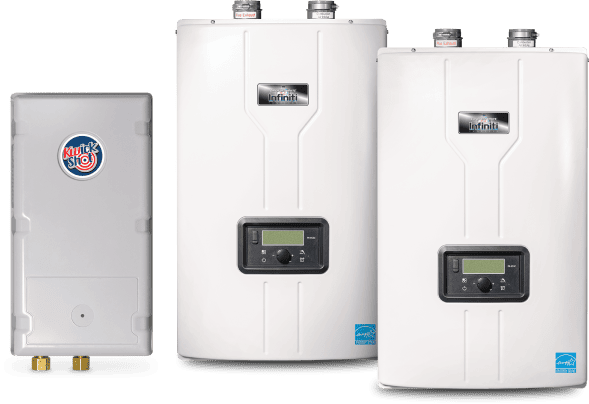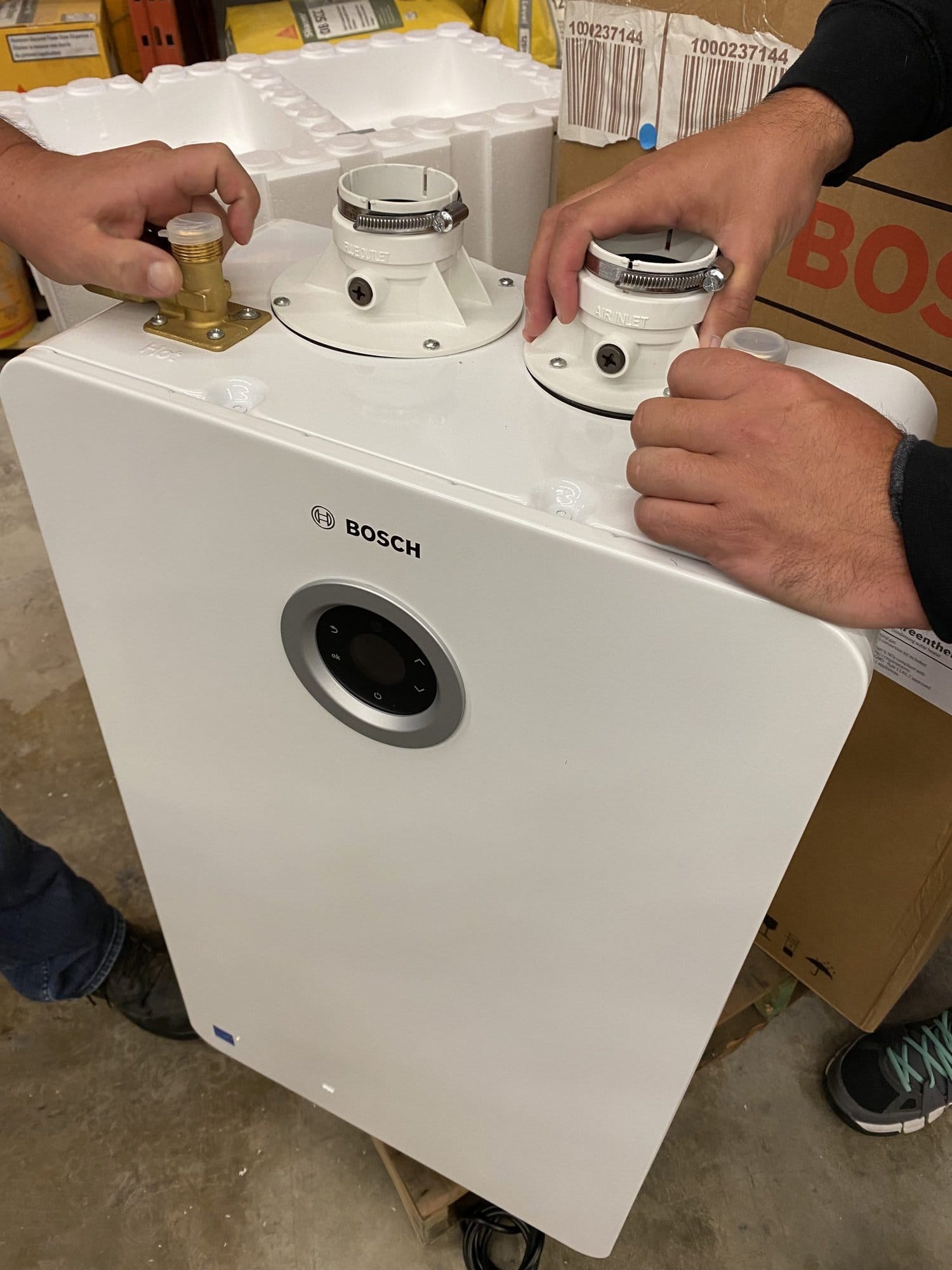In this article in the next paragraphs you can discover a good deal of sensible insights concerning Unveiling the Hot Trend: The Benefits of Tankless Water.

In a world where convenience and effectiveness preponderate, it's no surprise that home owners are frequently in search of smarter means to manage their home's energy intake and convenience. One technology that has actually gradually obtained appeal is the tankless water heater. But what exactly makes these systems stand out from the conventional tank-based versions a lot of us matured with? Allow's dive in and explore the benefits of tankless water heaters, assisting you choose if it's time to make the button in your house.
Intro
Photo this: you step into the shower after a lengthy day, anticipating a soothing waterfall of warm water, only to be greeted by icy beads since the last individual utilized it all up. Noise acquainted? Conventional hot water heater store a fixed quantity of warm water, meaning you're at the mercy of that container's supply. Tankless systems, on the other hand, warmth water on demand. Say goodbye to going out mid-shower, say goodbye to wrestling with routines just to make certain hot water is offered.
Understanding Tankless Water Heaters
What Are Tankless Hot Water Heater?
Tankless water heaters, often known as on-demand or instantaneous hot water heater, provide hot water only as it's required. Instead of keeping gallons of pre-heated water, these systems kick right into activity the moment you turn on the tap. Water goes through a warm exchanger, warming up in real-time, suggesting you get a continuous flow of hot water without the requirement for a large container resting lazily by.
Exactly how Do They Differ from Standard Systems?
Traditional heating systems hold a tank of hot water, making use of power to keep that tank at a regular temperature. Tankless devices get rid of the standing supply, reducing wasted power and the cumbersome impact of a huge cyndrical tube. Essentially, you're upgrading from a "accumulation" attitude to a "made-to-order" technique.
Common Types of Tankless Systems
Tankless water heaters usually are available in two ranges: gas and electrical. Gas designs tend to provide higher flow rates, perfect for larger homes, while electric designs frequently serve smaller homes and are typically much easier to install. Additionally, some systems are made for point-of-use (serving one fixture) while others can manage the entire home's hot water demands.
Trick Benefits of Tankless Water Heaters
Energy Performance and Price Savings
No more heating up a giant container's well worth of water and maintaining it toasty all day. Tankless heating systems decrease standby energy losses, which can decrease energy costs. While the preliminary cost could be greater, the long-lasting cost savings usually validate the investment.
3. Space-Saving Style
If your home is short on storage space, getting rid of the bulky container liberates beneficial area. Tankless units are portable and can often be placed on walls, tucked away in edges, or installed in tight utility closets without gobbling up the whole space.
4. Longer Life-span
A well-maintained tankless hot water heater can outlast its tank-based cousin. Typical storage tanks may last 10-15 years, while tankless versions can maintain chugging along for twenty years or even more, making them a solid financial investment in time.
1. Endless Hot Water Supply
Ever before needed to arrange showers so every person obtains their reasonable share of warm water? With tankless, that ends up being a thing of the past. As long as the heater's circulation capacity isn't surpassed, you can take back-to-back showers without developing into a popsicle.
5. Improved Water Top Quality
Storing water in a container can often result in debris accumulation or a somewhat "off" preference. With tankless systems, fresh water is heated instantly, reducing the chances of sediment build-up and possibly using cleaner-tasting water.
Factors to consider Prior To Changing
Though the advantages are compelling, it's wise to consider a few factors prior to totally devoting.
Assessing Your Home's Water Usage Patterns
If your household at the same time utilizes multiple components with high hot water need, make certain the system's circulation rate satisfies your requirements. Knowing your usage patterns helps you pick the appropriate dimension and type of tankless heating system.
Upkeep and Treatment Tips
Tankless systems are fairly low upkeep, but they aren't set-it-and-forget-it devices.
Routine Cleansing and Descaling
Difficult water minerals can accumulate in the heat exchanger, influencing efficiency. Routine descaling (typically advised each year) maintains the device performing at peak performance.
Annual Specialist Examinations
A yearly checkup from a specialist makes sure minor issues are captured early. They'll examine the device's efficiency, try to find leaks, and assist maintain optimum performance.
Preliminary Financial Investment Costs
Tankless heaters generally come with a higher upfront cost. In between the device itself and potential installation modifications, the first expense could offer you sticker shock. Yet keep in mind to view it as a lasting investment.
Installation Demands
Depending upon your home's infrastructure, you could need additional electric capacity or gas line upgrades. Guarantee you understand the installment requirements and seek advice from an expert to stay clear of surprises.
Making Sure Appropriate Air Flow
For gas versions, proper ventilation is important to securely expel exhaust gases. Ensure airing vent systems are tidy and appropriately set up to prevent any type of prospective security hazards.
Contrasting Different Brands and Models
Not all tankless water heaters are created equal.
Investigating Trusted Suppliers
Try to find respectable brand names with a background of producing top quality units. A trusted producer often gives better consumer assistance and longer guarantees.
Installment: DIY or Professional?
While some house owners cherish dealing with tasks themselves, tankless setup could not be the best time to burst out the tool kit.
Benefits and drawbacks of DIY Setup
A do it yourself install could save money, but it includes threats. Wrong installment can result in inadequacy or safety and security concerns. If you come in handy and have experience, it may be possible-- but proceed with care.
Reading Evaluations and Customer Responses
Customer testimonials and feedback from neighbors or pals that have actually gone tankless can provide valuable insights. Sometimes, real-life experiences can be much more telling than advertising and marketing pamphlets.
When to Call a Specialist Plumber
For a lot of, calling a pro makes certain whatever's done appropriately. An expert plumber comprehends local codes, sizing requirements, and airing vent parameters, reducing the danger of mishaps.
Making the most of Effectiveness
You have actually invested in a tankless unit-- now optimize its performance.
Optimum Temperature Settings
Lots of people establish their devices in between 120-140 F. Adjusting the temperature can enhance comfort and cost savings. Experiment to discover a wonderful area that doesn't squander power.
Coupling With Low-Flow Fixtures
Wish to stretch your unit's capacities? Think about setting up low-flow showerheads and faucets. They minimize water usage, permitting your tankless system to deliver a constant stream of hot water without stressing.
Ecological Influence
Tankless hot water heater align with greener living objectives.
Decreased Carbon Impact
By utilizing less power and only home heating water as needed, tankless systems can decrease your home's carbon footprint, lowering your environmental influence.
Saving Natural Resources
Less power intake and less lost warm water convert right into fewer natural resources being made use of, an environmental win-win.
Who Benefits The Majority Of from Tankless Heaters?
The beauty of tankless heaters is that they can fit a range of families.
Huge Family Members vs. Solitary Passengers
Large family members may love the limitless hot water supply, while solitary residents value the energy cost savings from not heating a whole container for simply one person's morning shower.
Property Owners with Limited Space
If your home is short on square video, losing the cumbersome container maximizes room for various other basics-- or perhaps just more elbow room.
Eco-Conscious Customers
Going tankless aligns with environmentally friendly worths, ensuring you're not wasting power or sources.
Future Trends in Tankless Water Heaters
The world of home appliances is ever-evolving, and tankless hot water heater are no exception.
Developments in Modern technology
R&D is continuously boosting heat exchangers, making systems extra efficient and long lasting. Future versions could be even quieter, much more compact, and much better fit for differing environments.
Smart Home Assimilation
Imagine adjusting your hot water heater's temperature via an application or obtaining maintenance notifies on your phone. As wise home tech breakthroughs, we'll see more connectivity and benefit.
Final thought
Picking a tankless water heater is more than just upgrading your home's warm water system; it's buying lasting comfort, power effectiveness, and a greener way of living. By considering your house's water use, bearing in mind installation requirements, and devoting to routine maintenance, you can delight in a constant stream of warm water without the luggage of a bulky tank. As technology advances, you can anticipate even smarter, more efficient tankless options that not just make your life easier however likewise profit the world.
Why You Should Consider a Tankless Water Heater for Your Home
Energy Efficiency and Cost Savings
Tankless water heaters, also known as on-demand water heaters, heat water only when needed. This means they don't waste energy keeping a tank of water hot constantly. This efficiency translates into substantial cost savings on your monthly energy bills.
Endless Hot Water Supply
One of the significant advantages of tankless water heaters is their ability to provide a continuous supply of hot water. Traditional tank water heaters have a limited capacity and can run out of hot water, especially during peak usage times. In contrast, tankless water heaters can provide an endless stream of hot water, making them ideal for larger families or homes with high water usage.
Space-Saving Design
Tankless water heaters are compact and take up significantly less space compared to traditional tank heaters. They can be installed on walls, under cabinets, or even outside, freeing up valuable space in your home. This makes tankless water heaters a great option for smaller homes or properties with limited space for a traditional water heater.
Longer Lifespan and Lower Maintenance
Tankless water heaters typically have a longer lifespan compared to traditional tank heaters. They can last up to 20 years or more with proper maintenance. Additionally, tankless systems are designed with replaceable parts, which can extend their lifespan further and reduce long-term maintenance costs.
Environmentally Friendly
Reducing energy consumption not only saves you money but also benefits the environment. Tankless water heaters contribute to a smaller carbon footprint by using less energy to heat water. Their energy efficiency and ability to minimize standby heat loss make them an eco-friendly choice for environmentally conscious homeowners.
Customized Temperature Control
Tankless water heaters offer precise temperature control, allowing you to set the desired temperature to meet your specific needs. This level of customization ensures you always have water at the perfect temperature for your comfort and usage requirements.
https://beantownservices.com/blog/consider-tankless-water-heater-for-your-home

We had been shown that write-up about 5 Benefits of Tankless Water Heaters from a friend on another web address. If you liked our blog post plz consider to share it. I recognize the value of your readership.
Course Detail